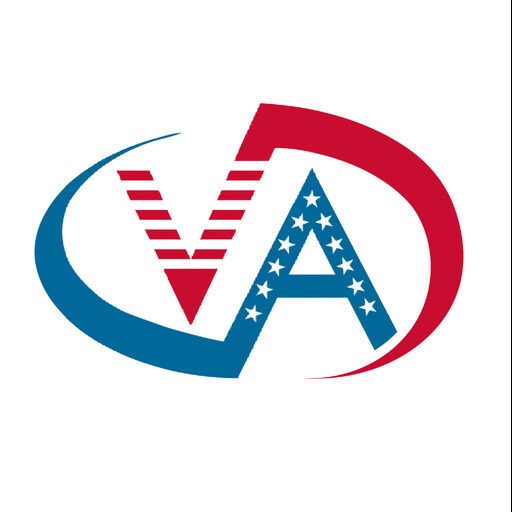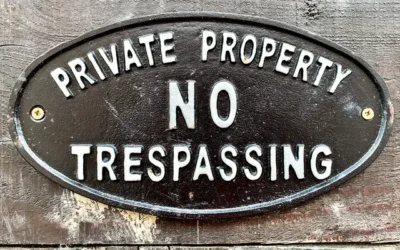For Veterans, active-duty service members, and eligible spouses, the VA loan program offers unmatched benefits for financing a home. However, one aspect often overlooked is the importance of title insurance.
Unlike homeowners insurance, which protects against future perils, title insurance addresses past issues such as liens, fraudulent deeds, and disputes over property ownership.
These problems can threaten your most significant investment. Understanding how title insurance works, its costs, and why it’s especially crucial for VA loan borrowers can save you thousands in legal fees and potential headaches.
What Is Title Insurance, and Why Do VA Loans Require It?
Your home’s title is the legal record of ownership. Title insurance provides protection against hidden or unforeseen claims that could surface—like unpaid taxes, contractor liens, or fraudulent deeds. Unlike homeowners insurance, which covers future events (e.g., fires or natural disasters), title insurance covers past issues that were not resolved before you purchased the home.
Why VA Loans Require Title Insurance:
- The U.S. Department of Veterans Affairs (VA) guarantees a portion of your loan, minimizing the lender’s risk.
- Lenders want assurance that the property title is clear, protecting their financial interest if a title defect arises.
- This requirement ultimately safeguards both the lender and the Veteran borrower from costly legal battles or financial losses.
Why It Matters for Veterans
For many Veterans, purchasing a home is the culmination of hard work and sacrifice. One seemingly small title issue—like an unknown lien or a dispute over property boundaries—can lead to thousands of dollars in legal fees or even the loss of the home. Title insurance steps in to handle these costs and complexities. Here’s how it benefits you:
- Provides peace of mind: You can focus on enjoying your new home without worrying about past owners’ debts.
- Covers legal defense: If someone challenges your ownership, your title insurer handles the legal process and expenses.
- Preserves your benefits: Avoid jeopardizing your VA loan over unexpected property disputes.
Types of Title Insurance for VA Loans
There are two main types of title insurance policies that matter when you’re using a VA loan:
- Lender’s Title Insurance (Required)
This policy protects the lender’s financial interest in the property. As a borrower, you typically pay for this policy at closing. The VA mandates it to ensure lenders are fully covered if a title issue emerges. - Owner’s Title Insurance (Optional But Highly Recommended)
This policy safeguards you, the homeowner, against title claims. It covers your equity and legal rights. If a previously unknown heir suddenly appears or a forged deed surfaces, your owner’s policy will handle legal and financial fallout.
Do You Need Both?
While lender’s title insurance is non-negotiable with a VA loan, owner’s title insurance is technically optional. However, skipping it could leave you vulnerable to costly claims that the lender’s policy won’t cover. Veterans often find the relatively small, one-time premium well worth the lifelong protection.
How Title Insurance Works: Title Search & Examination Process
Before issuing a policy, title companies conduct a thorough title search to identify potential issues. This process involves:
- Reviewing public records for past deeds, tax liens, judgments, or mortgages.
- Examining divorce or probate records to uncover unrecorded heirs.
- Verifying that all outstanding liens or encumbrances are satisfied or properly addressed.
Title Commitment: Once the title search is complete, you’ll receive a title commitment outlining any existing issues and the conditions that must be met before the final policy is issued.
Clearing Title Issues: If any red flags are discovered (e.g., an unpaid contractor’s lien), the title company works with the seller or other relevant parties to resolve them. Only after clearing these issues does the title company finalize the policy.
Real-World Examples of Title Defects & Claims
- Undisclosed Heirs: A Veteran purchased a home. Years later, an heir of a previous owner appeared, claiming rightful ownership. The owner’s policy covered the legal fees and potential settlement.
- Forged Deeds: A fraudulent sale occurred decades earlier. When it was uncovered, the current Veteran homeowner faced the prospect of losing the property. The title insurance policy defended the lawsuit and compensated the homeowner.
- Unpaid Property Taxes: Previous owners left unpaid taxes, and the county placed a lien on the home. Owner’s title insurance covered the outstanding balance and removed the lien.
Simultaneous Issue Discounts: How Veterans Can Save
When purchasing both the lender’s and owner’s title insurance policies, many title companies offer a simultaneous issue discount. This discount can significantly reduce the combined cost of both policies. For example, if the lender’s policy costs $800 and the owner’s policy costs $900 separately, a simultaneous issue could bring the total to less than $1,200 instead of $1,700. Veterans can leverage these discounts to minimize closing costs while still protecting their property rights.
How Much Does Title Insurance Cost for a VA Loan?
The cost of title insurance depends on the:
- Property’s purchase price
- Location (state-specific regulations affect rates)
- Title company fee structure
- Simultaneous issue discounts or other promotions
Below is a hypothetical cost table for a $200,000 home purchase (actual rates vary):
| State | Lender’s Policy (Approx.) | Owner’s Policy (Approx.) |
|---|---|---|
| California | $600–$900 | $700–$1,100 |
| Texas | $1,200–$1,800 | $1,400–$2,000 |
| Florida | $1,000–$1,500 | $1,200–$1,800 |
| Virginia | $500–$800 | $600–$1,000 |
| New York | $800–$1,200 | $900–$1,400 |
Who Pays for Title Insurance on a VA Loan?
Generally, Veterans pay for the lender’s policy as part of closing costs. However, VA regulations limit certain fees and closing costs that Veterans can be charged, so your final cost breakdown may differ from a conventional loan. In some real estate markets, sellers may agree to cover all or a portion of the title insurance costs to make their listing more appealing—especially in a buyer’s market.
Title Insurance and the VA Loan Closing Process
- Loan Application & Pre-Approval: You first secure a VA loan pre-approval, allowing you to understand your budget and potential closing costs.
- Title Search & Title Commitment: The title company digs into public records. You’ll receive the title commitment to review any discovered issues.
- Closing Disclosure: This document, provided by your lender, details all loan charges, including the title insurance premium. Make sure to review it carefully for accuracy.
- Final Closing: On closing day, you’ll sign the necessary documents, pay the agreed-upon costs, and formally receive your keys. The title company then finalizes and issues the title insurance policies.
How to Choose a Reputable Title Company or Attorney
Actionable Tips for Veterans:
- Compare Rates: Get multiple quotes; prices can vary significantly.
- Experience with VA Loans: Look for companies that understand VA-specific guidelines and can streamline the process.
- Check Reviews & References: Online reviews, BBB ratings, and referrals from fellow Veterans can offer valuable insights.
- Ask About Simultaneous Issue Discounts: Ensure you’re receiving the best bundle pricing.
- Review the Title Commitment Carefully: Verify that any issues have been resolved before closing.
The Bottom Line
Frequently Asked Questions
- Is title insurance mandatory for a VA loan?
Answer: Yes, lender’s title insurance is mandatory for VA loans to protect the lender’s interest. Owner’s title insurance is optional but highly recommended. - How much is title insurance for a VA loan?
Answer: Costs vary by state, property value, and title company. Expect to pay $500 to $2,500 for the lender’s policy. Owner’s policies may cost more but often qualify for simultaneous issue discounts. - Can I choose my own title company for a VA loan?
Answer: Yes, Veterans can shop around for the best rates and service, provided the company meets VA and lender guidelines. - What does title insurance cover on a VA loan?
Answer: It covers issues like unpaid taxes, undisclosed heirs, liens, and other defects from before you took ownership. - Can the seller pay for title insurance on a VA loan?
Answer: Yes. In certain markets, sellers may cover all or part of the cost. It’s negotiable based on your purchase contract. - How long does title insurance last?
Answer: Coverage typically lasts as long as you own the property. You pay once and receive protection for the lifetime of your ownership. - What happens if a title issue arises after closing?
Answer: The title insurer will handle legal fees, settlements, or financial losses if the issue is covered under your policy. - Is owner’s title insurance worth it for a VA loan?
Answer: Most experts advise purchasing it. The coverage can save you from costly legal battles and protect your financial stake in the home. - Can I skip title insurance to save money?
Answer: You cannot skip lender’s insurance on a VA loan. Skipping owner’s coverage is technically possible but exposes you to risk. - How do I know if the title is clean before closing?
Answer: The title company performs a search and issues a title commitment. Review it for accuracy and ensure any listed issues are resolved.
Legal Implications of Title Defects & How Title Insurance Protects Veterans
Title defects can lead to serious legal implications, including:
- Lawsuits from undisclosed heirs
- Forced removal of structures encroaching on another property
- Unexpected liens that must be paid off to avoid foreclosure
Protection for Veterans: By covering legal fees, court costs, and potential settlements, title insurance prevents a major financial blow that could otherwise burden you for years. It ensures your property rights remain intact and your dream of homeownership is not derailed by a hidden legal threat.
Case Study: How Title Insurance Saved a Veteran from Financial Loss
Meet John, a Marine Corps Veteran: John used his VA loan to purchase a suburban home. Six months after closing, he received notice of a mechanic’s lien against the property for unpaid work done by a previous owner. This lien threatened his homeownership, requiring a five-figure sum to clear. Fortunately, John had purchased an owner’s title insurance policy. His insurer covered the lien amount and legal fees, saving him thousands of dollars and preserving his property rights. Without owner’s coverage, John could have faced foreclosure or a costly legal battle.
Long-Term Benefits of Owner’s Title Insurance
Some Veterans ask, “If it’s not required, why should I bother with owner’s title insurance?” The reasons are clear:
- One-Time Payment: Unlike other forms of insurance, you pay the premium once, and coverage extends indefinitely.
- Legal Defense: Policies often include legal representation if someone challenges your ownership.
- Future Sale Facilitation: When you sell or refinance, you’ll have peace of mind that your title is free of unresolved issues.

The VA Loan Network Editorial Team is comprised of dedicated mortgage specialists and financial writers committed to providing veterans and service members with accurate, up-to-date information on VA loan benefits, eligibility, and the home-buying process.








